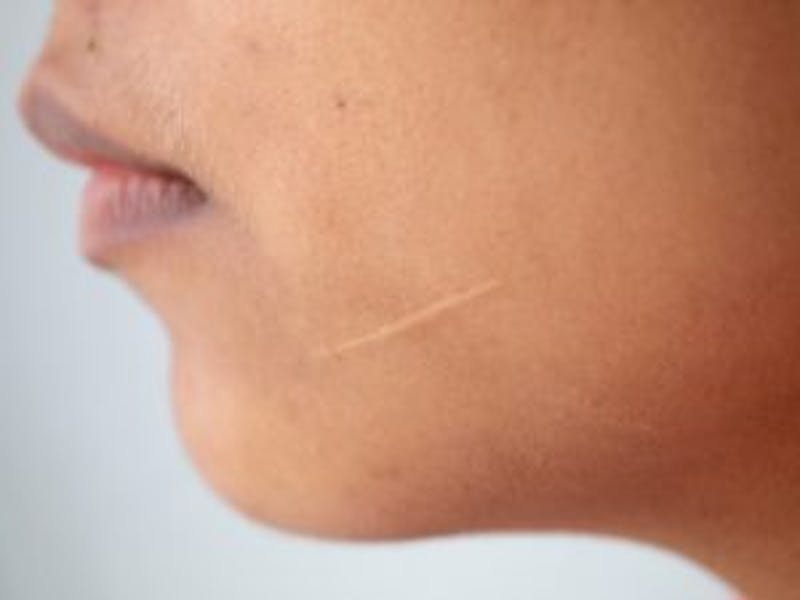

No one wants to relive the trauma of an accident or injury. Unfortunately, scars can be a painful and permanent reminder of the past that can affect daily life. Even if the sight of a scar is not emotionally painful, the physical presence of a scar, especially on the face, can be embarrassing and even disfiguring.
Many scars are minor and don’t impact everyday life. Others, however, can have a huge effect on confidence and self-esteem. If you have a large or prominent scar, then you may have wondered about scar repair options at some point. Some minor scars can be improved with creams or minimally invasive treatments. In many cases, though, surgery is the best option. Today, many plastic surgeons offer this service to help patients improve the appearance of their scars and their self-confidence.
Could you be a candidate for this powerful procedure? Here’s what you need to know about eligibility for the surgery.
Overall Health
Surgery is never without risk. That’s why it’s important for scar repair candidates to be in good overall health. If you are taking certain medications, have chronic health issues, or smoke, it may be too dangerous for you to undergo scar reconstructive surgery. Only you and your plastic surgeon can determine whether or not you are healthy enough for surgery.
If you are interested in treating scars caused by acne, it is very important that you do not have active acne when you undergo surgery. You will need to wait until any skin disorders have subsided in the area you wish to receive treatment.
Type, Size, and Location of the Scar
Unlike many other plastic surgery procedures, scar repair is highly unique. No two scars are alike. In fact, most scars are very different from one another in size, shape, color, and texture. During your scar repair evaluation, you will get more information about the kind of results you can expect from scar repair. Depending on the nature of the scar, surgery may not be advisable if little to no improvement can be expected. If you are seeking scar repair, you’re probably noticing a functional problem related to the scar or a cosmetic issue that bothers you. Usually at least some improvement can be made, but it’s important to discuss possible outcomes with an expert before deciding on scar repair.
Age of the Scar
In some cases, reconstruction is performed immediately, such as in the case of skin cancer lesion removal. If a scar is not treated right away, however, it’s almost always a good idea to give it some time to fade on its own before intervention occurs. This will give it time to soften and flatten, potentially avoiding the need for surgery altogether.
Realistic Expectations & Personal Motivations
One of the most important facts to keep in mind when planning your scar repair procedure is that it is not possible to fully remove a scar. Improvement is the goal for this surgery. And while remarkable improvement can be made in a scar’s appearance, it will never go away entirely. It’s a good idea to take a look at lots of before-and-after photos of scar repair surgery to get an idea of what is possible. Patients need to have realistic expectations about the results of the procedure in order to avoid any potential disappointment.
As with any plastic surgery procedure, you should make sure you are choosing surgery for the right reasons. You should not choose surgery because you feel pressured by friends and family. Always do what feels right to you, no matter what anyone else thinks. It’s easy to regret your decision if your motivations are influenced by others, so make sure surgery it’s something you want for yourself before you move forward!
An Individual Question
Though there are candidacy guidelines for scar repair, it’s important to note that candidacy is deeply personal. Patients will need to discuss their goals for surgery and reasons for seeking treatment with an expert facial plastic surgeon before making a decision about moving forward. You’ll discuss these issues with your plastic surgeon in a consultation. During this time you will have an evaluation of your medical history, a discussion about the procedure itself, and an opportunity to ask any questions you may have. You will also see computerized images that can give you a rough idea of what to expect after surgery. These are estimates only, but they can help you decide whether or not scar repair is right for you.
Find the Right Surgeon
When choosing your plastic surgeon, it’s important to look for an experienced, board certified facial plastic surgeon to consult with. Though there are many talented facial plastic surgeons in the United States, not all of them have the expertise and experience necessary to successfully camouflage a prominent scar. That’s why it’s so important to choose your surgeon carefully. You may want to consult with several surgeons before you make a decision. Aside from experience, knowledge, and skill, your surgeon should make you feel at ease, a quality that can only be assessed in person.
Ready to learn more about your scar repair candidacy? Dr. Edward Buckingham is an expert in facial reconstructive surgery. He has years of experience in refining and improving the appearance of unsightly scars. To schedule your consultation at Buckingham Center in Austin, Texas, call 512.401.2500 today!



